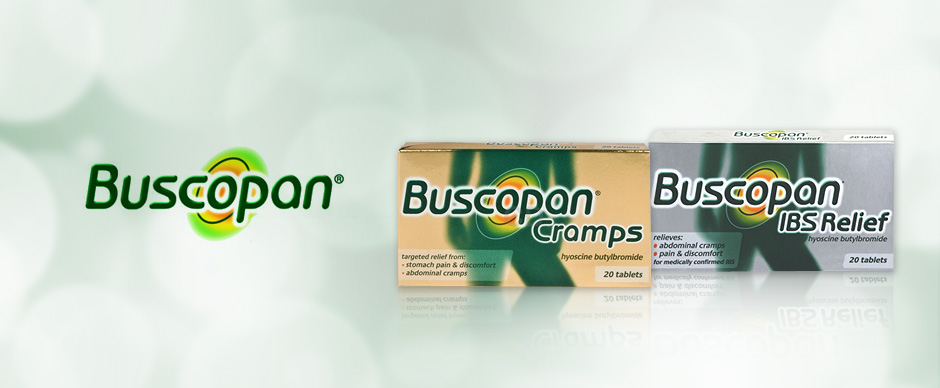
Irritable Bowel Syndrome Advice & Tips
About IBS
Irritable Bowel Syndrome (IBS) is a condition associated with an upset bowel. It is extremely common in the UK with around one in three people being affected at some stage in their life.
People with IBS will experience a number of symptoms, which often includes painful abdominal cramps and spasms, bloating, diarrhoea and constipation. However, IBS affects people in different ways and can be very changeable and unpredictable, so there may be times when the symptoms are mild and other times when they are severe.
Abdominal pain and discomfort can strike at any time, without warning, and can have a considerable impact on your everyday life. There may be times when the cramps and spasms from abdominal pain can literally stop you in your tracks or leave you doubled up in pain. This can be really disruptive and may prevent you working, studying, sleeping or even carrying out the simplest tasks. If you are facing such problems, it is important that you find out the cause of it and find a safe method for irritable bowel syndrome treatment.
What are the causes of abdominal pain?
Abdominal pain can be caused by muscles spasms in the stomach, intestines or colon. These spasms can be triggered by a number of factors, both internal and external. Internal factors include food allergies or intolerances from the things we eat or drink that can have a bad reaction, quickly setting your muscles into spasm when consumed. Illnesses, such as food poisoning can also cause organs in the digestive system to cramp, leading to abdominal pain.
Other factors that are also a cause of abdominal spasms and cramps are psychological in nature, such as tension and stress. Imagine when you feel nervous or anxious - your body can often become tense. The organs of your digestive symptoms may be said to mirror this tension, causing the normal muscle rhythms to go out of balance. This can result in the muscles irregularly contracting causing strong, painful cramps. Although painful, abdominal cramps are usually harmless. They can be linked to a number of illnesses, conditions or related symptoms, including:
- Diarrhoea
- Constipation
- Viral infection
- Lactose intolerance
- Diverticular disease
- Irritable Bowel Syndrome (IBS)
What can I do to manage abdominal pain associated with IBS?
Abdominal cramps can be intensely painful, and can last for several days at a time. Many people find they can effectively control abdominal pain and cramps associated with IBS with the help of antispasmodic treatments that are specifically designed to relax painful cramps and spasms, working at the source of the pain. These are readily available in pharmacies and supermarkets. Analgesics may provide relief, and they work by masking rather than acting at the source of the pain.
If you are experiencing abdominal pain on a regular basis, it is important that you speak to a doctor, as you may have a condition such as IBS, which can be effectively managed once diagnosed. If your abdominal pain is recurring or getting worse, or if pain is accompanied by fever or weight loss, or if you notice blood on your stools, it is also very important you discuss your symptoms with a doctor immediately.
Preventing Abdominal Pain:
We all know that prevention is better than cure. For some, making some simple changes to your lifestyle to avoid any known 'triggers' of your symptoms can help to avoid abdominal pain occurring in the first place.
Diet
It may be that you have a food allergy or intolerance but are not actually aware of it. The best way to find out if you do have a sensitivity to certain foods is by keeping a food diary for a month, recording all the things you eat and drink and note down any symptoms you experience as a result.
Exercise & relaxation
Regular exercise has been proven to be a great form of stress relief. You do not need to be a fitness fanatic to enjoy regular exercise - a brisk walk everyday, a 30-minute swim or a regular yoga or pilates class can make a significant difference at reducing levels of stress.
Seven tips for taking the pain out of IBS:
Step 1 - Get Diagnosed
Be sure that your symptoms are due to IBS and not another condition.
Step 2 - Treat the root of the problem
To cope with pain, a number of treatments are available for painful abdominal spasms associated with IBS.
Step 3 - Exercise regularly
Exercise helps relieve depression and stress, stimulates normal contractions of your intestines and can help you feel better about yourself.
Step 4 - Identify your trigger foods
Keep a food diary. People can often identify food and drinks that trigger symptoms and diet can subsequently be modified.
Step 5 - Talk things through
It is often the case that stressful events can bring on or exacerbate symptoms. Through dealing with the bigger issues, the pain may be avoided. Don't be afraid to try psychological therapies.
Step 6 - De-stress
Stress can often be the cause of symptoms to flare-up and can further exacerbate an existing attack so look into relaxation techniques.
Step 7 - Be informed
It is important to feel in control of your symptoms so gather as much information you can.
IBS: Targeted Treatment
Buscopan is clinically proven to provide effective and targeted irritable bowel syndrome treatment. It provides relief from painful abdominal cramps associated with medically confirmed IBS. Buscopan IBS Relief is an antispasmodic treatment, which works directly on the cramping muscle of the bowel to ease pain and discomfort. Its active ingredient is derived from natural hyoscine extracted from the Duboisia plant found in Australia and South America.

